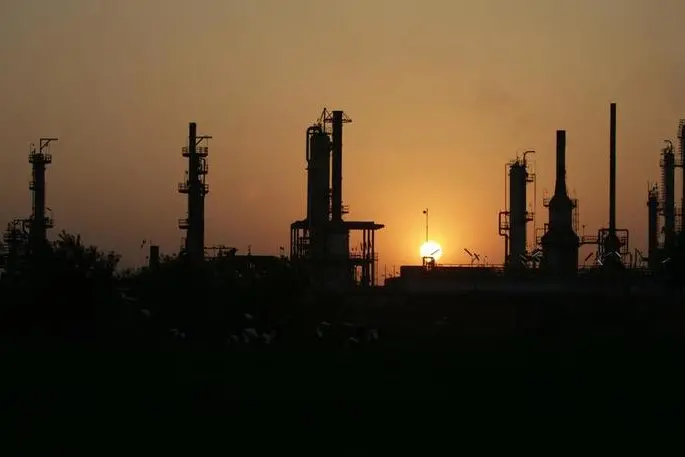PHOTO
How is the Egyptian General Petroleum Authority coping with fuel shortages after Saudi Arabia rescinded on a deal to provide Egypt with petrol and diesel shipments
By Ahmed Ismail
Egypt’s Ministry of Petroleum and Mineral Resources is seeking a deal with the Iraqi government to import around one million barrels of crude oil to meet some of the Egyptian market’s petroleum needs after the Saudi company Aramco stopped deliveries of petrol and diesel fuel to Egypt in October.
According to Tarek Al-Hadidi, CEO of the Egyptian General Petroleum Authority (EGPA), the first shipment of Iraqi crude oil is scheduled in March “to be processed at Egyptian refineries and produce petroleum outputs for the domestic market.”
“We are currently trying to reach agreements with governments in several countries to buy crude oil and refine it in Egyptian plants,” Al-Hadidi said.
“We already did this with Kuwait and Iraq.” He added that the deal with Iraq included importing one million barrels a month of crude oil “in a one-year contract that is renewable annually.”
The EGPA imports around two million barrels of crude oil every month from Kuwait, whose government agreed in November to extend the contract to sell crude oil to Egypt starting in January with a grace period of nine months before payments begin.
There are 12 oil refineries in Egypt with an estimated capacity of 34 million tons. These currently operate at a capacity of 25 million tons.
In November, the EGPA signed a memorandum of understanding with the State Oil Company of the Azerbaijani Republic (SOCAR) to import up to two million barrels of crude oil to be processed at the Egyptian refineries MIDOR and Nasr Petroleum.
Aramco, the largest oil company in the world, informed the EGPA in October last year that it would stop sending petroleum products to Egypt “until further notice”. The EGPA has thus been forced to find other sources of supply to meet domestic demand by launching international tenders, according to oil expert Medhat Youssef.
Youssef said the EGPA, which is responsible for meeting Egypt’s fuel needs, had resorted to international tenders to buy petroleum products from the global market without facilitated payments by the Saudi company. He noted that the EGPA would now have to find the foreign currency needed to pay for its petroleum needs.
Last April, the EGPA signed a deal with Aramco for 700,000 tons of oil products per month for five years, divided into 400,000 tons of diesel oil, 200,000 tons of petrol, and 100,000 tons of mazut on an easy payment schedule.
Under the agreement, the Saudi Development Fund would have footed the bill to Aramco on behalf of the EGPA, which was given a grace period of three years after which installments would begin over 15 years at an interest rate of two per cent.
However, in early October Aramco verbally informed the EGPA that it would not be delivering the shipments, with no further explanation or for how long this would last. Minister of petroleum and mineral resources Tarek Al-Molla said the Saudi company had informed the EGPA that it would suspend shipments “until further notice”.
Youssef said the EGPA had resorted to international tenders to make up the deficit “and deals with more than 50 international suppliers” while making payment arrangements in cooperation with the Central Bank of Egypt (CBE).
“Shipments of petroleum products and liquid gas cost more than $800 million due to the increase in global oil prices,” he added.
The CBE and the public-sector banks in Egypt opened letters of credit for the EGPA in January worth some $631 million to buy oil products from abroad as well as some $1.2 billion in December, according to the CBE.
EGPA figures reveal that domestic market needs of diesel oil amount to 1.2 million tons, butane gas to 340,000 tons, petrol to 530,000 tons, and mazut to two million tons.
Youssef compared the deal with Aramco and international tenders. “The contract with Aramco stated that the EGPA would begin payments one year after delivery, doing so in installments over 15 years. In the international tenders the EGPA must pay for shipments upon delivery or one month later at the latest,” he commented.
Domestic consumption of petrol is 6.1 million tons annually in Egypt, of which grade 80 petrol accounts for some 3.5 million tons, followed by grade 92 at about 2.7 million tons and grade 95 at 32,000 tons, according to last year’s budget.
The EGPA has predicted a 3.6 per cent drop in the consumption of petroleum products in the local market during the current fiscal year, compared to its fuel consumption figures for 2015/2016, to reach 39 million tons of oil products.
Meanwhile, domestic consumption of petrol is expected to rise by 6.68 per cent to reach 6.7 million tons, compared to 6.28 million tons last year. A hike in butane gas consumption is also expected by 1.26 per cent, to reach four million tons.
© Al Ahram Weekly 2017





















